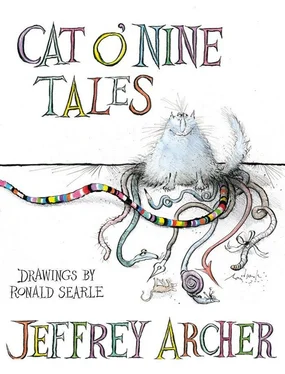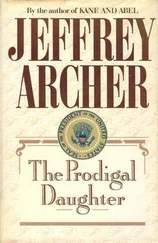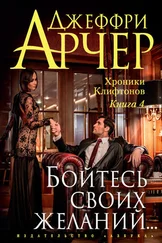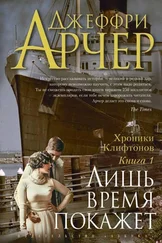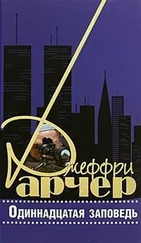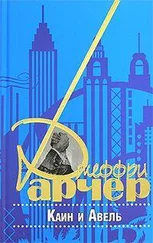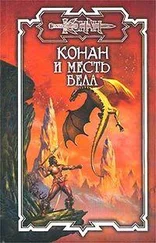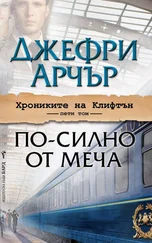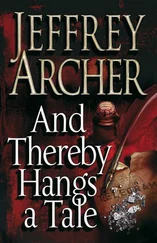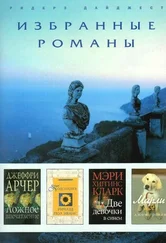Джеффри Арчер - Cat O'Nine Tales
Здесь есть возможность читать онлайн «Джеффри Арчер - Cat O'Nine Tales» весь текст электронной книги совершенно бесплатно (целиком полную версию без сокращений). В некоторых случаях можно слушать аудио, скачать через торрент в формате fb2 и присутствует краткое содержание. Город: London, Год выпуска: 2006, ISBN: 2006, Издательство: Macmillan, Жанр: Современная проза, short_story, на английском языке. Описание произведения, (предисловие) а так же отзывы посетителей доступны на портале библиотеки ЛибКат.
- Название:Cat O'Nine Tales
- Автор:
- Издательство:Macmillan
- Жанр:
- Год:2006
- Город:London
- ISBN:978-0-230-01493-0
- Рейтинг книги:4 / 5. Голосов: 1
-
Избранное:Добавить в избранное
- Отзывы:
-
Ваша оценка:
- 80
- 1
- 2
- 3
- 4
- 5
Cat O'Nine Tales: краткое содержание, описание и аннотация
Предлагаем к чтению аннотацию, описание, краткое содержание или предисловие (зависит от того, что написал сам автор книги «Cat O'Nine Tales»). Если вы не нашли необходимую информацию о книге — напишите в комментариях, мы постараемся отыскать её.
Cat O'Nine Tales — читать онлайн бесплатно полную книгу (весь текст) целиком
Ниже представлен текст книги, разбитый по страницам. Система сохранения места последней прочитанной страницы, позволяет с удобством читать онлайн бесплатно книгу «Cat O'Nine Tales», без необходимости каждый раз заново искать на чём Вы остановились. Поставьте закладку, и сможете в любой момент перейти на страницу, на которой закончили чтение.
Интервал:
Закладка:
Max discovered that hundreds of Chinese artefacts occupied the fifteen rooms, and it took him the best part of an hour to locate the chess set. He had considered seeking guidance from one of the uniformed guards, but as he had no desire to draw attention to himself, and also doubted that they would be able to answer his question, he thought better of it.
Max had to hang around for some time before he was left alone in the room. He could not afford a member of the public or, worse, a guard, to witness his little subterfuge. Max noted that the security guard covered four rooms every thirty minutes. He would therefore have to wait until the guard had departed for the Islam room, while at the same time being sure that no other visitors were in sight, before he could make his move.
It was another hour before Max felt confident enough to take the bastard out of his pocket and compare the piece with the legitimate king, standing proudly on its red square in the display cabinet. The two kings stared at each other, identical twins, except that one was an impostor. Max glanced around — the room was still empty. After all, it was eleven o’clock on a Tuesday morning, half term, and the sun was shining.
Max waited until the guard had moved on to Islamic artefacts before he carried out his well-rehearsed move. With the help of a Swiss Army knife, he carefully prised open the lid of the display cabinet that covered the Chinese masterpiece. A raucous alarm immediately sounded, but long before the first guard appeared, Max had switched the two kings, replaced the cover of the case, opened a window and strolled casually into the next room. He was studying the costume of a samurai when two guards rushed into the adjoining room. One cursed when he spotted the open window, while the other checked to see if anything was missing.
‘Now, you’ll want to know,’ suggested Max, clearly enjoying himself, ‘how I trapped both brothers into a fool’s mate.’ I nodded, but he didn’t speak again until he’d rolled another cigarette. ‘To start with,’ continued Max, ‘never rush a transaction when you’re in possession of something two buyers want, and in this case, desperately want. My next visit—’ he paused to light his cigarette — ‘was to a shop in the Charing Cross Road. This had not required a great deal of research, because they advertised themselves in the Yellow Pages under Chess, as Marlowe’s, the people who serve the masters and advise the beginners.’
Max stepped into the musty old shop, to be greeted by an elderly gentleman who resembled one of life’s pawns: someone who took the occasional move forward, but still looked as if he must eventually be taken — certainly not the type who reached the other side of the board to become a king. Max asked the old man about a chess set that he had spotted in the window. There then followed a series of well-rehearsed questions, which casually led to the value of a red king in the Kennington Set.
‘Were such a piece ever to come onto the market,’ the elderly assistant mused, ‘the price could be in excess of fifty thousand pounds, as everyone knows there are two certain bidders.’
It was this piece of information that caused Max to make a few adjustments to his plan. His next problem was that he knew his bank account wouldn’t stretch to a visit to New York. He ended up having to ‘acquire’ several small objects from large houses, which could be disposed of quickly, so he could visit the States with enough capital to put his plan into effect. Luckily it was in the middle of the cricket season.
When Max landed at JFK, he didn’t bother to visit Sotheby’s or Christie’s, but instead instructed the yellow cab to drive him to Phillips Auctioneers on East 79th Street. He was relieved to find that, when he produced the delicate carving stolen from the British Museum, the young assistant didn’t show a great deal of interest in the piece.
‘Are you aware of its provenance?’ asked the assistant.
‘No,’ replied Max, ‘it’s been in my family for years.’
Six weeks later a sales catalogue was published. Max was delighted to find that Lot 23 was listed as being of no known provenance, with a high value of $300. As it was not one of the items graced with a photograph, Max felt confident that few, if any, would take much interest in the red king, and it would therefore be unlikely to come to the attention of either Edward or James Kennington. That is, until he made them aware of it.
A week before the sale was due to take place, Max rang Phillips in New York. He had only one question for the young assistant, who replied that although the catalogue had been available for over a month, no one had shown any particular interest in his red king. Max feigned disappointment.
The next call Max made was to Kennington Hall. He tempted his lordship with several ifs, buts and even a maybe, which elicited an invitation to join Lord Kennington for lunch at White’s.
Lord Kennington explained to his guest over a bowl of brown Windsor soup that Max could not produce any papers over lunch as it was against the club rules. Max nodded, placed the Phillips catalogue under his chair, and began an elaborate tale of how by sheer accident, while viewing the figure of a mandarin on behalf of a client, he had come across the red king.
‘I would have missed it myself,’ said Max, ‘if you hadn’t acquainted me with its history.’
Lord Kennington did not bother with pudding (bread and butter), cheese (Cheddar) or biscuits (water), but suggested they took coffee in the library, where you are allowed to discuss business.
Max opened the Phillips catalogue to reveal Lot 23, along with several loose photographs he had not shown the auctioneer. When Lord Kennington saw the estimate of three hundred dollars, his next question was, ‘Do you think Phillips might have told my brother about the sale?’
‘There is no reason to believe so,’ replied Max. ‘I’ve been assured by one of the assistants working on the sale that the public have shown little interest in lot twenty-three.’
‘But how can you be so sure of its provenance?’
‘That’s what I do for a living,’ said Max with confidence. ‘But you can always have the piece carbon-dated, and if I’m proved wrong, you won’t have to pay for it.’
‘Can’t ask for more than that,’ said Lord Kennington, ‘so I suppose I’ll have to fly to America and bid for the piece myself,’ he added, thumping the arm of the leather chair. A cloud of elderly dust rose into the air.
‘I wonder if that would be wise, my lord,’ said Max, ‘after all—’
‘And why not?’ demanded Kennington.
‘It’s just that, if you were to fly to the States without explanation, it might arouse unnecessary curiosity among certain members of your family,’ Max paused, ‘and if you were then spotted in an auction house...’
‘I take your point,’ said Kennington, and looking across at Max added, ‘so what do you advise, old boy?’
‘I would be only too happy to represent your lordship’s interests,’ said Max.
‘And what would you charge for such a service?’ Lord Kennington enquired.
‘One thousand pounds plus expenses,’ said Max, ‘against two and a half per cent of the hammer price, which I can assure you is standard practice.’
Lord Kennington removed his chequebook from an inside pocket and wrote out the figure £1,000. ‘How much do you estimate the piece might fetch?’ he asked casually.
Max was pleased that Lord Kennington had raised the subject of price, as it would have been his next question. ‘That will depend on whether anyone else is privy to our little secret,’ said Max. ‘However, I would suggest that you place an upper limit of fifty thousand dollars on the piece.’
Читать дальшеИнтервал:
Закладка:
Похожие книги на «Cat O'Nine Tales»
Представляем Вашему вниманию похожие книги на «Cat O'Nine Tales» списком для выбора. Мы отобрали схожую по названию и смыслу литературу в надежде предоставить читателям больше вариантов отыскать новые, интересные, ещё непрочитанные произведения.
Обсуждение, отзывы о книге «Cat O'Nine Tales» и просто собственные мнения читателей. Оставьте ваши комментарии, напишите, что Вы думаете о произведении, его смысле или главных героях. Укажите что конкретно понравилось, а что нет, и почему Вы так считаете.
